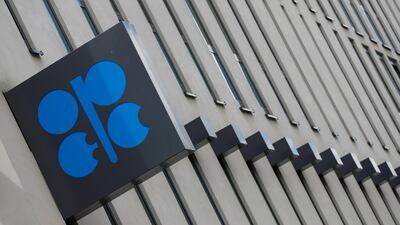The biggest foe faced by the Organisation of the Petroleum Exporting Countries is, and has almost always been, the market − the forces against which it is locked in a continuous and ultimately futile tussle. Yet Opec was set up in 1960 to help promote its members’ interests against a more defined threat: multinational oil companies. Opec’s early efforts successfully loosened the oil companies’ iron grip on the resources of its member nations, paving the way for the windfall of riches that was the sovereign right of these countries. Maybe it should have been dissolved once that objective had been achieved.
Since then, amid the rise of competing producers in North America, the North Sea and elsewhere in the 1970s, the collapse in demand in the 1980s, geopolitical and economic crises in the 1990s, booming energy asset trading in the 2000s, the financial crash and the Arab Spring in more recent years, Opec has struggled to maintain cohesive leadership and clear long-term objectives.
Now at 58 years old, the group, like many other ageing international organisations, is at a crossroads. What should it be in 2018, 2030, or 2050? As one former senior official put it, "In the 1970s Opec was the oil price setter and the envy of the world". Since then, however, it has lost much of its prestige.
This has happened partly because Opec made miscalculations such as underestimating the effect of high prices in supporting the development of more expensive oil produced by non-member countries. It also mistakenly assumed that oil purchased for strategic stockpiling by the United States was more than just temporary demand. Essentially, the market is untameable. Although Opec has been taught this lesson on many occasions, it is still grappling to truly learn from it.
Today, according to the former Opec official, its role should be ceremonial.
However, Opec has worked very hard to stay relevant. A push, which started in the late 1980s, towards non-Opec producers reached its peak with the current co-operation deal that has helped lift and then stabilise oil prices. But can this near marriage be anything more than transitional?
The different agendas of Opec’s members – starkly illustrated by Iran’s current woes – has always been challenging for the group’s overall effectiveness. What effect will accommodating those of 11 other producers − including Russia, Malaysia and Mexico − have on the organisation?
Still, it has dealt with the collapse in crude prices from 2014-peaks admirably, becoming more dynamic, improving its external communication and showing that it can negotiate with skill and vigour to achieve its aims.
Oil will remain a strategic commodity for the foreseeable future. It will also not stop being subject to commodity market rules, procedures and principles. Supply and demand, stock and other relevant parameters drive those markets.
Right now, Opec’s stated main goal is price stability and its route to achieving this is something along the lines of “co-operation, co-operation, co-operation”. As such, it appears to be positioned as a champion of the collective health of the market. One problem it faces and will continue to face is that every country considers it a sovereign right to manage its own resources as it sees fit. Therefore, Opec’s members will not always agree on production quotas, even when they say they do.
Another, is that tension with the consumers of Opec’s oil becomes inevitable. The United States, China and India matter most, together accounting for about 70 per cent to 80 per cent of global demand.
US President Donald Trump, for one, appears to buy into the idea of Opec as a player in the market rather than a custodian of it. Harvard University’s Meghan O’Sullivan has talked about the successful communication Opec has been having with its major customers, but has also warned that there is “a lot of misunderstanding about [the group] in the US and there is a very, very strong perception that its interests are by definition the opposite of US interests”. In reality, she says, Opec and the US have a common interest in the stability of the market and that this must be emphasised better going forward.
Should Opec then redefine itself as an almost neutral institution, one that has the best interests of all energy producers and consumers at heart, rather than focusing on the oil markets? For that to be possible it must first pay more than lip service to other energy sources such as renewables and nuclear power. This is particularly important in the case of China, which is striving to build a “clean, low-carbon, safe and efficient energy system”, according to its National Energy Administration. China has also set targets related to this goal, including that by 2020, usage of non-fossil fuels will be at 15 per cent, and by 2030 at 20 per cent.
The market will of course experience repeated periods of turbulence during this era of energy transition. Despite any single group’s best efforts, it will always prove to be the boss. Still, it will be interesting to see how Opec fares as it keeps fighting the good fight.
Mustafa Alrawi is an assistant editor-in-chief at The National


